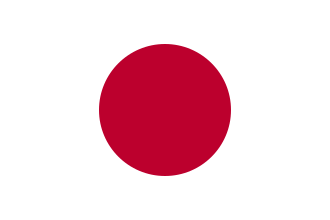July marks the beginning of wine harvest season in many parts of the world. As vineyards buzz with activity and fresh grapes are pressed into juice and wine, it’s a fitting time to explore a unique and often misunderstood aspect of kosher food laws: why grape juice and wine have more stringent kosher requirements than other ingredients.
Today, sourcing kosher grape juice for industrial use is not especially difficult. It is widely available, and many manufacturers already use it across product categories. While it does cost more than standard grape juice and requires additional oversight, it is manageable and not considered burdensome by most kosher-certified companies.
That said, when it comes to grape juice or wine-based products, kosher certification enters a different category altogether. The making of kosher grape juice and wine demands a higher level of ritual control, supervision, and compliance, far beyond what is required for most other ingredients. This article explains why.
A Special Ingredient in Jewish Law
For most kosher-certified foods, supervision revolves around ingredients and equipment. If everything going into a product is kosher and the equipment is clean and kosher, the product is typically considered kosher.
But grape juice and wine are different. Their historical and religious roles in both Jewish and non-Jewish contexts prompted the rabbis to enact special protections. Jewish law requires that kosher grape juice and wine be produced entirely by Jews who observe Shabbat. That means every stage, from crushing to bottling, must be performed exclusively by fully Shabbat-observant Jewish personnel. While they may be guided or directed by regular staff, only the Shabbat-observant Jewish personnel are permitted to carry out the actual work. If the grape juice or wine is mevushal (briefly boiled or pasteurized, changing its ritual status), the handling restrictions are lifted after it is boiled or pasteurized.
For kosher agencies, it’s not just about checking ingredients. It’s about being physically present through every stage of production.
Modern Uses of Grape Juice
Wine and grape juice aren’t just for ritual use anymore. They’re widely used in modern food production, appearing in surprising places:
- Natural Sweetener: Grape juice concentrate is a popular substitute for refined sugars in juices, teas, and sodas.
- Fruit Snacks and Gummies: Adds sweetness and natural coloring to many children’s snacks.
- Sports and Energy Drinks: Used for flavor and natural sugar content.
- Baby Food: Included in many organic and natural baby food blends for taste and acidity balance.
- Baked Goods and Candy: Sometimes it replaces corn syrup in baking and confectionery.
- Dairy and Non-Dairy Products: Helps enhance flavor and acidity in yogurts and plant-based alternatives.
Whenever grape juice is used, even as just one ingredient, these same kosher rules still apply—though industrial use is now routine and relatively easy to manage.
Why It Costs More: What You’re Really Paying For
If you’ve ever compared prices between kosher and non-kosher wines or grape juices, you’ve probably noticed the difference. However, in today’s market, purchasing kosher grape juice for industry is common and not a major challenge. Many companies do it regularly.
What sets grape juice or wine-based production apart is the level of ritual and standard enforcement required. Here’s where the added cost and complexity come in:
- Labor-Intensive Supervision: Every step must be performed by Shabbat-observant Jews, often under on-site rabbinic supervision.
- Limited Production Facilities: Only select wineries and plants meet kosher standards for wine.
- Koshering Equipment: Non-kosher wineries must undergo comprehensive cleansing procedures before being used.
- Mevushal Processing: To render wine suitable for broader kosher use, it must undergo heat treatment to change its ritual status. This is often done with low-heat or flash pasteurization and may require equipment reconfiguration to allow for standard valid evaporation. These adjustments add labor and oversight requirements.
- Supply Chain Oversight: Every component, from the vineyard to the bottling line, must be documented and supervised.
So, while kosher grape juice is accessible and manageable, grape juice or wine-based products remain in a category of their own—both in terms of the religious requirements and the operational impact.
Certification in Action: Keeping Kosher Practical and Reliable
Reliable kosher certification agencies like OK Kosher work to make this process practical without compromising on standard integrity. Through digital tracking, on-site supervision, and strong communication with plant management, certification systems are designed not to slow production, but to maintain reliability and transparency. The goal is to preserve trust while making kosher production efficient.
Closing Thoughts: A Season of Trust and Transparency
As grapes are harvested and transformed into the season’s first wines, it’s the perfect time to reflect on why kosher grape beverages are so carefully supervised.
In Jewish tradition, wine and grape juice are more than just ingredients. They hold deep religious and symbolic meaning, which is why they are treated with added care in kosher law. While the process may be more involved, many companies have already embraced it successfully—and the results speak for themselves.
In a season that celebrates the beauty and bounty of the harvest, kosher wine is more than a product. It reflects values: handled with care, crafted with integrity, and trusted across generations.
L’Chaim—To life!
In Jewish culture, this traditional toast is shared before drinking grape juice or wine, especially at celebrations. Like “Cheers” in English or “Salud” in Spanish, L’Chaim expresses a hope for health, joy, and meaningful connection. It’s a small word that carries big intent, and the perfect way to honor the purpose behind every kosher pour.


 EN
EN  ZH
ZH  KR
KR  BR
BR  ES
ES  IN
IN  IL
IL  JP
JP 




